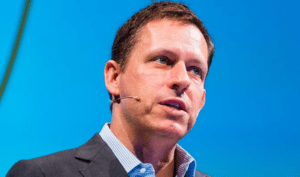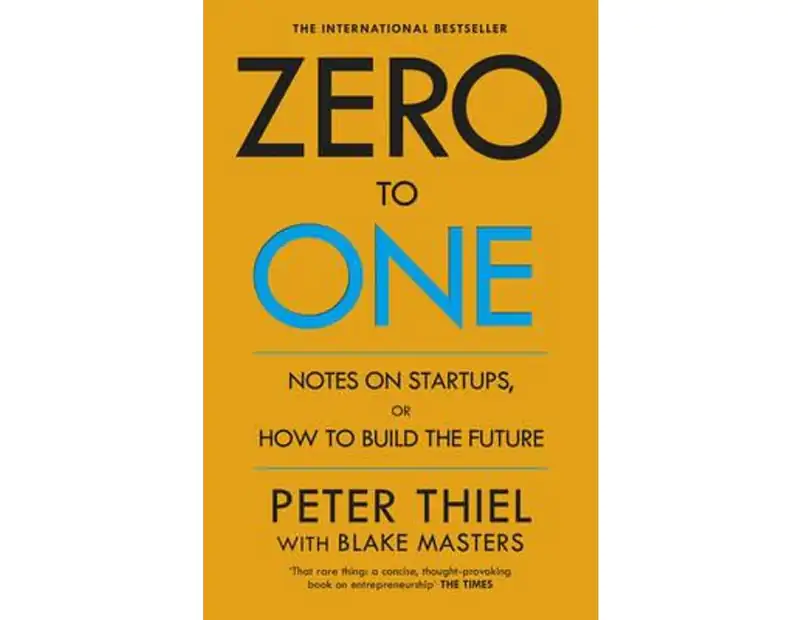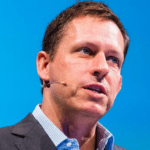

Peter Thiel
Peter Thiel is a German-American billionaire entrepreneur, venture capitalist, and political activist. A co-founder of PayPal, Palantir Technologies, and Founders Fund, he was the first outside investor in Facebook. As of May 2022, Thiel had an estimated net worth of $7.19 billion and was ranked 297th on the Bloomberg Billionaires Index.
He worked as a securities lawyer at Sullivan & Cromwell, as a speechwriter for former U.S. Secretary of Education William Bennett and as a derivatives trader at Credit Suisse. He founded Thiel Capital Management in 1996. He co-founded PayPal with Max Levchin and Luke Nosek in 1998, serving as chief executive officer until its sale to eBay in 2002 for $1.5 billion.
After PayPal, he founded Clarium Capital, a global macro hedge fund based in San Francisco. In 2003, he launched Palantir Technologies, a big data analysis company, serving as its chairman since its inception. In 2005, he launched Founders Fund with PayPal partners Ken Howery and Luke Nosek. Earlier, Thiel became Facebook’s first outside investor when he acquired a 10.2% stake for $500,000 in August 2004. He sold the majority of his shares in Facebook for over $1 billion in 2012, but remains on the board of directors. He co-founded Valar Ventures in 2010; co-founded Mithril Capital, serving as investment committee chair, in 2012; and served as a part-time partner at Y Combinator from 2015 to 2017.
Be innovative, take risks.
Solve a hard problem and you’ll have a business.
Every startup should start with a very smack market. The perfect target for a startup is a small group of particular people concentrated together and served by few or no competitors.
Once you create and dominate a niche market, then you should gradually expand into related and slightly broader markets.
As you craft a plan to expand to adjacent markets, don’t disrupt : avoid competition as much as possible.
Will this business be around in a decode from now?
Network effects make a product more useful as people use it (i.e. Facebook).
Network effects businesses must start with especially small markets.
The way you do that is to dominate a small niche and scale up from there, toward your ambitious long-term vision.
You could have 100% of the equity if you fully fund your own venture, but if =it fails, you’ll have 100% of nothing. Owning just 0.01% of Google in contrats is incredibly valuable.
What valuable company is nobody building? What important truth do very few people agree with you on?
“If it were possible to discover something new, wouldn’t someone from the faceless global talent pool of smarter and more creative people have found it already? This voice of doubt can dissuade people from even starting to look for secrets in a world that seems too big a place for any individual to contribute something unique.”
A great company is a conspiracy to change the world; when you share your secret, the recipient becomes a fellow conspirator.
To anticipate for misalignment in any company, it’s useful to distinguish between three concepts:
– ownership: who legally owns the company? (investors, founders, employees, etc.)
– possession: who runs the company? (employees, managers)
– control: who formally governs the company’s affairs? (board of directors)
It’s better to think of distribution as something essential to the design of your products. If you’ve invented something new but you haven’t invented an effective way to sell it, you have a bad business – no matter how good the product.
A product is viral if its core functionality encourages users to invite their friends to become users too. This is how Facebook and PayPal both grew quickly.
Poor sale rather than bad product is the most common cause of failure.
You should never assume that people will admire your company without a public relation strategy.
How can computers help humans solve hard problems?
1. The Engineering Question
Can you create breakthrough technology instead of incremental improvements?
2. The Timing Question
Is now the right thing time to start your particular business?
3. The Monopoly Question
Are you starting with a big share of a small market?
4. The People Question
Do you have the right team?
5. The Distribution Question
Do you have a way to not just create but deliver your product?
6. The Durability Question
Will your market position be defensible 10 and 20 years into the future?
7. The Secret Question
Have you identified a unique opportunity that others don’t see?






